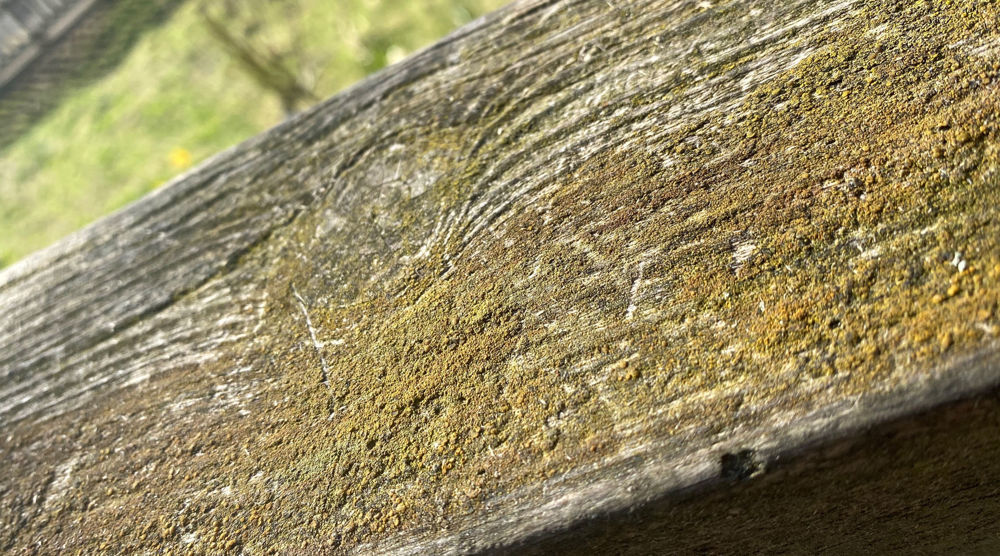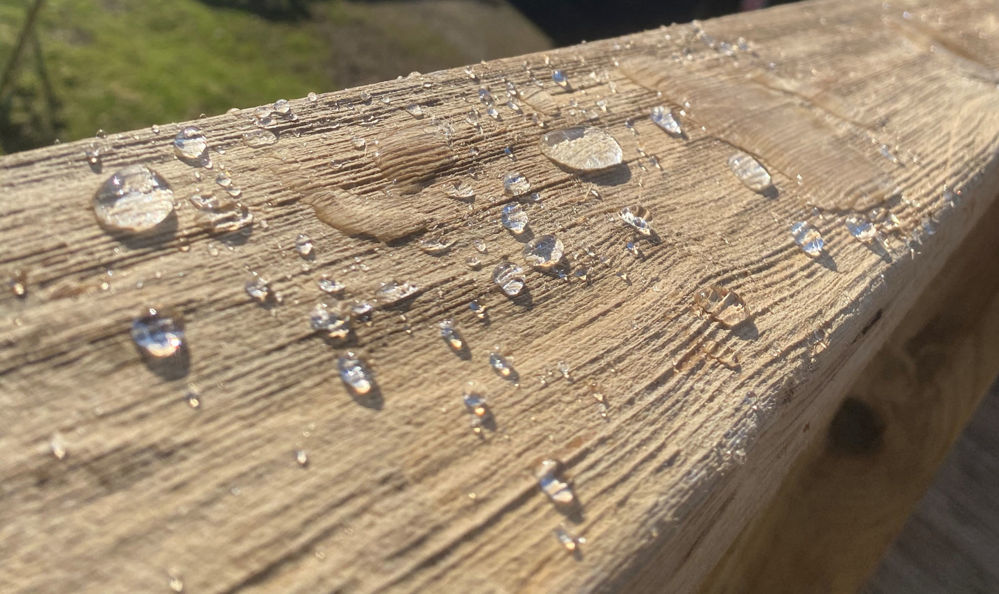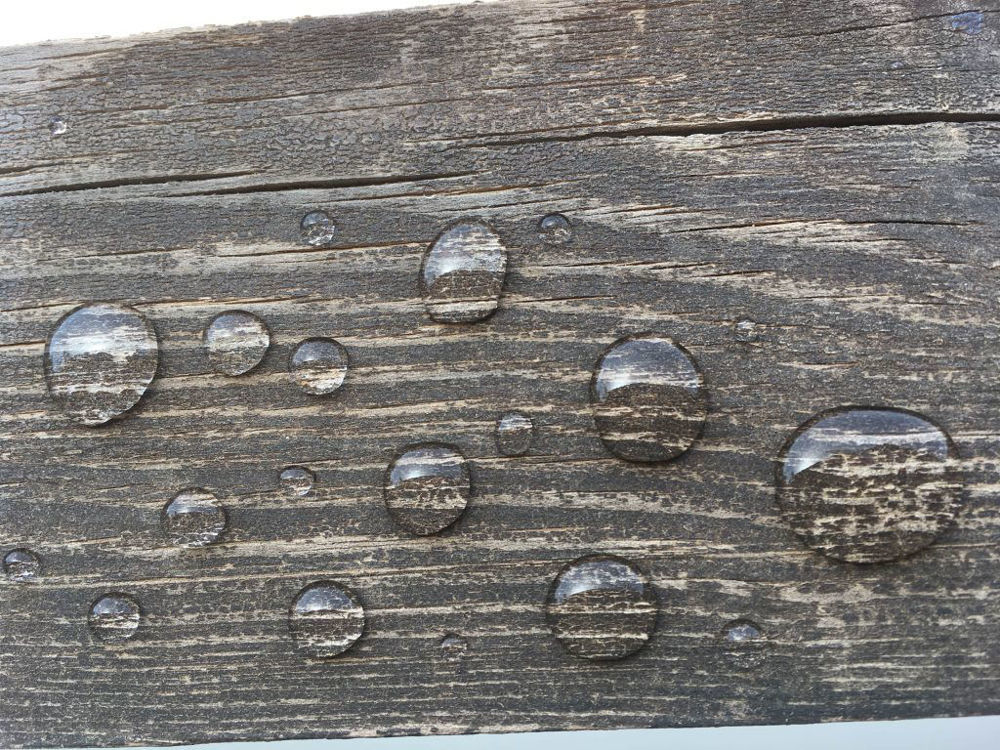
Are you looking to treat a login cabin with a protective treatment to help provide it with added the durability it needs to withstand the elements? Finding the right treatment for any exterior wood can be difficult, which is why we have put together this ultimate guide to log cabin treatment so you can ensure your log cabin is protected and stays looking at its best long-term in any weather conditions.
Why Is Applying A Log Cabin Treatment Important?
Log cabins are traditionally made using whole or half cut logs to create thick, protective exteriors for outdoor buildings. Their strong structure helps to provide the building with better insulation than other outdoor timber structures, which is why they are often used as outdoor buildings such as summer houses.
When it comes to exterior surfaces, keeping them protected is a constant battle. From high temperatures in summer to constant wetting in winter, ensuring that any exterior building material has the necessary protection is vitally important for its performance. Exterior building materials, whether they be brick, concrete, stone or wood rarely come with high levels of weather resistance to start with, meaning they can all be prone to weathering if left untreated.
All of these materials are what is known as 'mineral' surfaces, which means they are porous. The more porous a surface, the more water it can absorb and hold within the material. Due to this porosity, these mineral surfaces can become saturated with water over time, which can lead to a wide variety of problems, both with the performance and appearance of the surface.
Exterior wood in particular is highly porous, meaning it will uptake a large amount of water if left untreated. Not only this, but wood as a natural mineral surface is highly susceptible to damage due to its structure, meaning while all mineral surfaces suffer from weathering, exterior wood will be particularly at risk.
Exposure to moisture can impact wood in a number of ways. Firstly, when wood is saturated with moisture, it can lead to shrinking and swelling, caused by the moisture content within the wood creating movement. This movement in turn can lead to the timber warping and splitting the grain of the timber. This not only can be an aesthetic issue but will also allow more moisture to enter the timber, worsening the effects weathering can have on the logs.
Secondly, wood can also become damaged through rotting, caused by a fungus that eats away at the timber. This leads to the material losing its strength, causing parts to split off from the main structure of the timber. This fungus requires high moisture conditions, which is why rotting generally occurs on highly saturated wood that has been exposed to high levels of moisture for an extended period of time.
Aside from damage to the wood, moisture also leads to aesthetic issues on the wood, such as discolouration and organic growth. Organic growth, which includes mildew, algae and moss, thrives in the same way as wet rot in high moisture environments. Once the organic growth attaches itself to the grain of the wood, it will spread over-time, eventually leading to large parts of the wood being engulfed in organic matter.
Rotting, organic growth and shrinkage will all cause problems for exterior wood until the source of the moisture is prevented, which is why addressing the source of the moisture is crucial for protecting outdoor timber.

While moisture is the primary source of deterioration in exterior wood, weathering in other forms can also play a role in the ageing of timber. Discolouration such as 'silvering' is caused by UV rays that bleach the natural colour of the wood. This is because bare, untreated wood has poor levels of UV protection, meaning it will continue to lose its natural colour over a number of years.
In the case of any weather that can occur on exterior wood, the best way to treat it is to prevent it in the first place. Whether you have new wood that you want to protect or already weathered wood that you want to revive, providing it with added weather protection is the most effective way to extend its life span and keep it looking its best without regular maintenance.
What Is The Best Way To Treat A Log Cabin?
When it comes to protecting bare, untreated wood, as we have mentioned it is crucial to provide it with the necessary weather protection to allow it to perform at its best.
The most effective way to treat a log cabin is to use a high-quality wood waterproofer. By applying a waterproofing treatment to the wood, you will reduce the moisture that causes the damage to exterior timber. It is important to know however, that not all wood treatments are waterproof. To be waterproof, a treatment must be water repellent. Without water repellent properties, moisture will simply soak through the surface and into the timber. This is often the case with many wood paints, stains and varnishes, although they can offer some level of protection to the timber.
To fully protect exterior wood without altering its appearance, a treatment such as Emperor Exterior Wood Waterproofer is ideal. This is a super hydrophobic treatment, meaning it is ultra water repellent. This means that any water that lands on the wood simply falls off without soaking into the timber. While reducing water absorption, it is also highly breathable which means any water vapour can naturally breathe out of the wood. Without this high breathability, any moisture within the timber becomes trapped, causing it to cause the material to become just as saturated with water than if it was left untreated.
By reducing water absorption and allowing the wood to breathe, it keeps exterior wood dry and helps to prevent the problems that causes exterior wood to deteriorate over time.

The treatment is also UV resistant, meaning it helps to reduce the effects of silvering on exterior timber, acting much in the same way as a suncream would do. This limits the impact that silvering can have on the timber, helping to maintain the natural beauty of the wood.
This is all achieved by the highly advanced nano-technology within Emperor Exterior Wood Waterproofer. This nano-technology chemically bonds to the wood, meaning instead of creating a coating on the surface of the timber, it becomes part of the timber itself. This means that the treatment has no impact on the appearance of the wood and dries completely clear, ensuring wood stays looking natural. This also means that there is no coating or film to become weathered, giving the treatment extremely high durability. In independent 25 year weathering tests, Emperor Exterior Wood Waterproofer was found to have no change in performance or appearance, demonstrating it will protect wood and withstand any weather conditions for a minimum of 25 years.
A Guide To Treating Log Cabins
When it comes to treating a log cabin, there are a number of steps you must take to ensure you get the best possible results. The most important aspect of the process is the preparation, which is often the most overlooked part of any decorating project.
The first part of the process is to clean the wood to ensure that not only it is looking its best, but also that there is nothing on the wood to prevent the treatment from performing. On log cabins that suffer from large amounts of dirt, use a power washer to remove these contaminants from the surface. On log cabins that have small amounts of dirt, you can wash this down using a soft brush and hot soapy water. You may also want to sand the wood down slightly on badly affected areas where cleaning alone won't remove all dirt.
Once the surface dirt has been cleaned, it is important to treat it for any fungal growth. New wood and wood under the age of 12 months is very unlikely to be suffering from fungal growth, so if there is no signs of lichens, mildew or moss, you do not need to treat fungus. If there are signs of growth on wood over the age of 12 months, this must be treated using a fungicidal cleaner. This kills any fungal growth, ensuring that once treated, the wood will be free from any future organic matter. Apply Emperor Exterior Cleaner to the wood and leave this to dry for two hours. After the two hour period, any fungus present on the wood will be killed and the wood is fully clean ready to be treated.
Now you have cleaned the wood and ensured there is no fungal growth on the surface, it is ready to be treated, however before you do this it is important to cover any areas you do not want to cover. Apply masking tape the edges of the log cabin, apply window film to any windows and put a dust sheet down on the floor to catch any drips. This will all save you time when it comes to cleaning up and ensures that no surfaces are coated in the treatment.
Emperor Exterior Wood Waterproofer is extremely easy to apply so anyone can do it. The thin, clear liquid can be applied using a brush, roller or a pump-sprayer, so it is completely up to you how you want to apply the treatment. Simply apply one-coat of the treatment to the wood at a coverage of 5m2 per litre and allow it to dry for 1 hour at 20°C. After this, the treatment will be completely invisible and touch-dry. Once applied, you not only will not have to apply another coat, you will not have to re-apply the treatment for in excess of 25 years, leaving the log cabin maintenance free.

Frequently Asked Questions
Q. DO I NEED TO TREAT THE INSIDE OF A LOG CABIN?
By applying a waterproofing coating to the exterior of the log cabin, you prevent the moisture from entering into the structure through water ingress. This means that you do not need to apply anything to the inside of the structure in order to protect the wood from external weathering.
Q. HOW OFTEN DO I NEED TO RE-APPLY THE LOG CABIN TREATMENT?
Emperor Exterior Wood Waterproofer has been proven in independent testing to withstand any weather conditions for 25 years, however it will likely far exceed this as after the 25 year testing was completed, there were no signs of deterioration in performance. We also offer a 10 year manufacturer fungicidal on the product, which further ensures you will not have to re-apply the product for decades.
This is in contrast to many oil-based wood treatments that are generally recommended to be re-applied every 6-12 months, depending on the product being used.
Q. HOW MUCH WILL I NEED?
When it comes to finding out how much treatment you will need, it is important to take your time and do some measuring in order to get the most accurate estimate. You will need to measure both the length and the height of each wall of the log cabin and multiply these numbers together. For example, if one wall of the log cabin is 5 metres in length and 2 metres high, the total square metres of that wall is 10m2. Repeat this for all four walls of the log cabin and add these numbers together to give you the total square metres of the log cabin.
Emperor Exterior Wood Waterproofer has a coverage of 5m2 per litre and is a one-coat treatment, meaning a 5L will cover 25m2 in total.
Q. WHAT IS THE DIFFERENT BETWEEN WATER-BASED AND OIL-BASED?
There are a wide range of differences between water-based and oil-based products that have an impact on how a product is applied and how it will perform. A water-based product will dry in 1-2 hours, does not come with an unpleasant smell, is low in VOC's and is generally better for the environment when compared to an oil-based product. Oil-based products in contrast can take 3-8 hours to dry and can come with an unpleasant smell, which is why many homeowners generally prefer to use a water-based product where possible.
We hope we have answered any questions you may have had regarding log cabin treatment. If you have any other questions, feel free to get in touch with our team of experts who are on hand to assist you. Contact them today by emailing info@emperorpaint.co.uk or calling them on 0161 509 9009. Alternatively, shop Emperor Exterior Wood Waterproofer and get FREE delivery on all orders.

